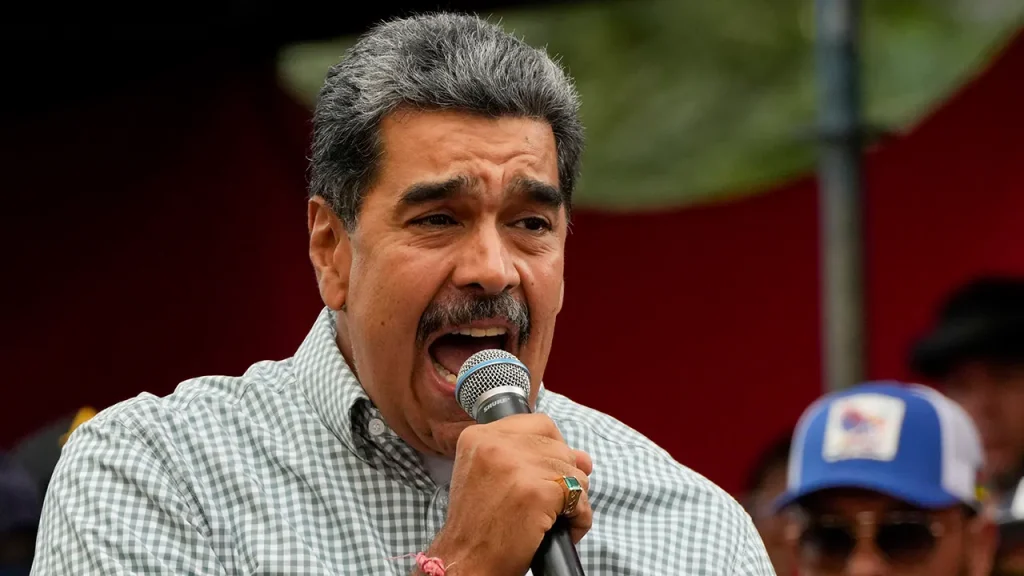The Venezuelan political landscape once again finds itself embroiled in controversy following the arrest of two U.S. citizens, an event shrouded in ambiguity yet laden with accusations of terrorism by President Nicolás Maduro. Maduro, poised to commence his contested third term, alleges these Americans are “mercenaries” involved in a larger group of seven detainees, which also includes two Colombians and three Ukrainians. He further claims to have apprehended 125 foreign mercenaries from 25 countries, all purportedly intent on destabilizing Venezuela through acts of terrorism. These assertions, however, have been categorically refuted by the U.S. State Department, which denies any U.S. involvement in plots against Maduro and expresses concern for the detained Americans. This incident underscores the volatile nature of U.S.-Venezuela relations and raises concerns about the safety of American citizens within the country.
The timing of these arrests coincides with both Maduro’s impending inauguration and the visit of Venezuelan opposition leader Edmundo Gonzalez to Washington, D.C. Gonzalez, recognized by the U.S. and several other nations as the legitimate victor of the disputed July election, has presented evidence challenging Maduro’s claim to victory. This contested election result has further strained the already tense relationship between the two countries, with the U.S. maintaining its support for Gonzalez while Maduro accuses the U.S. of meddling in Venezuelan affairs. The arrest of the American citizens adds another layer of complexity to this political standoff, potentially serving as a bargaining chip for Maduro in future negotiations or a means to deflect attention from his controversial third term.
Maduro’s accusations of a U.S.-backed coup attempt are not new. Following the contested election, he has repeatedly claimed that the CIA is orchestrating plots to overthrow his government. These claims have escalated in recent months, with Maduro alleging the seizure of hundreds of rifles and the arrest of a Navy SEAL. Observers view these accusations with skepticism, suggesting they are a tactic to divert attention from his illegitimate inauguration, suppress dissent, and create a pretext for crackdowns on opposition protests. By portraying himself as a victim of foreign interference, Maduro aims to rally support, justify his authoritarian actions, and deflect blame for Venezuela’s deepening economic and humanitarian crises.
The State Department, meanwhile, maintains its position of non-interference in Venezuelan internal affairs while expressing concern over the well-being of the detained Americans. Their identities remain undisclosed due to privacy concerns, and the State Department is actively working to gather more information about their situation. This situation underscores the precarious position of American citizens in Venezuela, a country designated as a Level 4 “do not travel” location by the State Department due to significant security risks. The arrest of these two Americans serves as a stark reminder of the potential dangers faced by U.S. citizens traveling to or residing in Venezuela.
The arrest of the two Americans adds another chapter to the ongoing saga of U.S.-Venezuela relations, marked by accusations, denials, and political maneuvering. While the specific charges against the Americans remain unclear, the context of the arrests suggests they are likely intertwined with the broader political conflict between the two nations. The incident highlights the volatile political climate in Venezuela, the ongoing power struggle between Maduro and the opposition, and the precarious position of American citizens caught in the crossfire. The future of these detainees remains uncertain, as does the trajectory of U.S.-Venezuela relations.
Isaias Medina, a former Venezuelan diplomat to the United Nations, characterizes Maduro’s actions as “hostage diplomacy,” a strategy employed to gain leverage and deflect criticism. By detaining foreign nationals on dubious charges, Maduro creates bargaining chips and diverts attention from his own legitimacy issues. This tactic, coupled with the suppression of dissent and the creation of scapegoats, allows Maduro to maintain a semblance of control amidst growing domestic discontent and international pressure. The arrests, therefore, serve not only as a message to the U.S. but also as a tool of intimidation against the Venezuelan people, discouraging opposition and reinforcing Maduro’s grip on power. This latest incident underscores the complex and challenging nature of the situation in Venezuela and the ongoing need for a diplomatic resolution to the political crisis.


